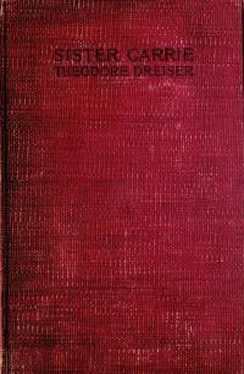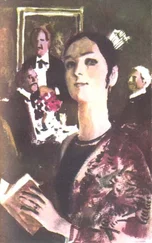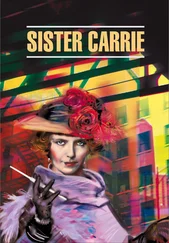Теодор Драйзер - Sister Carrie
Здесь есть возможность читать онлайн «Теодор Драйзер - Sister Carrie» — ознакомительный отрывок электронной книги совершенно бесплатно, а после прочтения отрывка купить полную версию. В некоторых случаях можно слушать аудио, скачать через торрент в формате fb2 и присутствует краткое содержание. Год выпуска: 2004, Жанр: Классическая проза, на английском языке. Описание произведения, (предисловие) а так же отзывы посетителей доступны на портале библиотеки ЛибКат.
- Название:Sister Carrie
- Автор:
- Жанр:
- Год:2004
- ISBN:нет данных
- Рейтинг книги:4 / 5. Голосов: 1
-
Избранное:Добавить в избранное
- Отзывы:
-
Ваша оценка:
- 80
- 1
- 2
- 3
- 4
- 5
Sister Carrie: краткое содержание, описание и аннотация
Предлагаем к чтению аннотацию, описание, краткое содержание или предисловие (зависит от того, что написал сам автор книги «Sister Carrie»). Если вы не нашли необходимую информацию о книге — напишите в комментариях, мы постараемся отыскать её.
Sister Carrie — читать онлайн ознакомительный отрывок
Ниже представлен текст книги, разбитый по страницам. Система сохранения места последней прочитанной страницы, позволяет с удобством читать онлайн бесплатно книгу «Sister Carrie», без необходимости каждый раз заново искать на чём Вы остановились. Поставьте закладку, и сможете в любой момент перейти на страницу, на которой закончили чтение.
Интервал:
Закладка:
"Can you always get in another show?"
"I always have. There's one going on up at the Broadway this month. I'm going to try and get in that if this one really goes."
Carrie heard this with aroused intelligence. Evidently it wasn't so very difficult to get on. Maybe she also could get a place if this show went away.
"Do they all pay about the same?" she asked.
"Yes. Sometimes you get a little more. This show doesn't pay very much."
"I get twelve," said Carrie.
"Do you?" said the girl. "They pay me fifteen, and you do more work than I do. I wouldn't stand it if I were you. They're just giving you less because they think you don't know. You ought to be making fifteen."
"Well, I'm not," said Carrie.
"Well, you'll get more at the next place if you want it," went on the girl, who admired Carrie very much. "You do fine, and the manager knows it."
To say the truth, Carrie did unconsciously move about with an air pleasing and somewhat distinctive. It was due wholly to her natural manner and total lack of self-consciousness.
"Do you suppose I could get more up at the Broadway?"
"Of course you can," answered the girl. "You come with me when I go. I'll do the talking."
Carrie heard this, flushing with thankfulness. She liked this little gaslight soldier. She seemed so experienced and self-reliant in her tinsel helmet and military accoutrements.
"My future must be assured if I can always get work this way," thought Carrie.
Still, in the morning, when her household duties would infringe upon her and Hurstwood sat there, a perfect load to contemplate, her fate seemed dismal and unrelieved. It did not take so very much to feed them under Hurstwood's close-measured buying, and there would possibly be enough for rent, but it left nothing else. Carrie bought the shoes and some other things, which complicated the rent problem very seriously. Suddenly, a week from the fatal day, Carrie realised that they were going to run short.
"I don't believe," she exclaimed, looking into her purse at breakfast, "that I'll have enough to pay the rent."
"How much have you?" inquired Hurstwood.
"Well, I've got twenty-two dollars, but there's everything to be paid for this week yet, and if I use all I get Saturday to pay this, there won't be any left for next week. Do you think your hotel man will open his hotel this month?"
"I think so," returned Hurstwood. "He said he would."
After a while, Hurstwood said:
"Don't worry about it. Maybe the grocer will wait. He can do that. We've traded there long enough to make him trust us for a week or two."
"Do you think he will?" she asked.
"I think so."
On this account, Hurstwood, this very day, looked grocer Oeslogge clearly in the eye as he ordered a pound of coffee, and said:
"Do you mind carrying my account until the end of every week?"
"No, no, Mr. Wheeler," said Mr. Oeslogge. "Dat iss all right."
Hurstwood, still tactful in distress, added nothing to this. It seemed an easy thing. He looked out of the door, and then gathered up his coffee when ready and came away. The game of a desperate man had begun.
Rent was paid, and now came the grocer. Hurstwood managed by paying out of his own ten and collecting from Carrie at the end of the week. Then he delayed a day next time settling with the grocer, and so soon had his ten back, with Oeslogge getting his pay on this Thursday or Friday for last Saturday's bill.
This entanglement made Carrie anxious for a change of some sort. Hurstwood did not seem to realise that she had a right to anything. He schemed to make what she earned cover all expenses, but seemed not to trouble over adding anything himself.
"He talks about worrying," thought Carrie. "If he worried enough he couldn't sit there and wait for me. He'd get something to do. No man could go seven months without finding something if he tried."
The sight of him always around in his untidy clothes and gloomy appearance drove Carrie to seek relief in other places. Twice a week there were matinées, and then Hurstwood ate a cold snack, which he prepared himself. Two other days there were rehearsals beginning at ten in the morning and lasting usually until one. Now, to this Carrie added a few visits to one or two chorus girls, including the blue-eyed soldier of the golden helmet. She did it because it was pleasant and a relief from dulness of the home over which her husband brooded.
The blue-eyed soldier's name was Osborne—Lola Osborne. Her room was in Nineteenth Street near Fourth Avenue, a block now given up wholly to office buildings. Here she had a comfortable back room, looking over a collection of back yards in which grew a number of shade trees pleasant to see.
"Isn't your home in New York?" she asked of Lola one day.
"Yes; but I can't get along with my people. They always want me to do what they want. Do you live here?"
"Yes," said Carrie.
"With your family?"
Carrie was ashamed to say that she was married. She had talked so much about getting more salary and confessed to so much anxiety about her future, that now, when the direct question of fact was waiting, she could not tell this girl.
"With some relatives," she answered.
Miss Osborne took it for granted that, like herself, Carrie's time was her own. She invariably asked her to stay, proposing little outings and other things of that sort until Carrie began neglecting her dinner hours. Hurstwood noticed it, but felt in no position to quarrel with her. Several times she came so late as scarcely to have an hour in which to patch up a meal and start for the theatre.
"Do you rehearse in the afternoons?" Hurstwood once asked, concealing almost completely the cynical protest and regret which prompted it.
"No; I was looking around for another place," said Carrie.
As a matter of fact she was, but only in such a way as furnished the least straw of an excuse. Miss Osborne and she had gone to the office of the manager who was to produce the new opera at the Broadway and returned straight to the former's room, where they had been since three o'clock.
Carrie felt this question to be an infringement on her liberty. She did not take into account how much liberty she was securing. Only the latest step, the newest freedom, must not be questioned.
Hurstwood saw it all clearly enough. He was shrewd after his kind, and yet there was enough decency in the man to stop him from making any effectual protest. In his almost inexplicable apathy he was content to droop supinely while Carrie drifted out of his life, just as he was willing supinely to see opportunity pass beyond his control. He could not help clinging and protesting in a mild, irritating, and ineffectual way, however—a way that simply widened the breach by slow degrees.
A further enlargement of this chasm between them came when the manager, looking between the wings upon the brightly lighted stage where the chorus was going through some of its glittering evolutions, said to the master of the ballet:
"Who is that fourth girl there on the right—the one coming round at the end now?"
"Oh," said the ballet-master, "that's Miss Madenda."
"She's good looking. Why don't you let her head that line?"
"I will," said the man.
"Just do that. She'll look better there than the woman you've got."
"All right. I will do that," said the master.
The next evening Carrie was called out, much as if for an error.
"You lead your company to-night," said the master.
"Yes, sir," said Carrie.
"Put snap into it," he added. "We must have snap."
"Yes, sir," replied Carrie.
Astonished at this change, she thought that the heretofore leader must be ill; but when she saw her in the line, with a distinct expression of something unfavourable in her eye, she began to think that perhaps it was merit.
Читать дальшеИнтервал:
Закладка:
Похожие книги на «Sister Carrie»
Представляем Вашему вниманию похожие книги на «Sister Carrie» списком для выбора. Мы отобрали схожую по названию и смыслу литературу в надежде предоставить читателям больше вариантов отыскать новые, интересные, ещё непрочитанные произведения.
Обсуждение, отзывы о книге «Sister Carrie» и просто собственные мнения читателей. Оставьте ваши комментарии, напишите, что Вы думаете о произведении, его смысле или главных героях. Укажите что конкретно понравилось, а что нет, и почему Вы так считаете.









